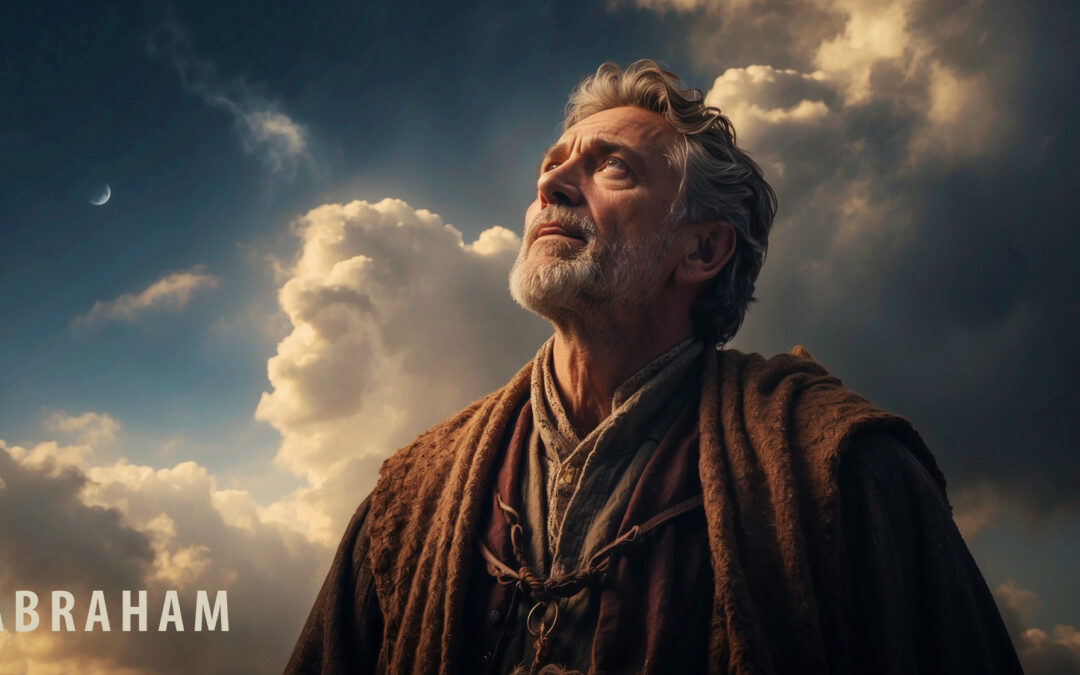“Jesus said unto them, Verily, verily, I say unto you, Before Abraham was, I am.”
(John 8:58)
The first verse of the Gospel of John beautifully mirrors the opening of Genesis: “In the beginning.” Yet John adds a phenomenal truth—“the Word was with God, and the Word was God.” This Word, the Lord Jesus Christ, was not only present from the beginning, but was eternal, divine, and active in the creation of all things. He is the self-existent One, the everlasting Son.
John continues: “He was in the world, and the world was made by him, and the world knew him not. He came unto his own, and his own received him not. But as many as received him, to them gave he power to become the sons of God” (John 1:10–12). Though He formed the very world He entered, Christ was rejected by those who should have known Him best. Still, He gathers those who believe into the family of God by grace.
In John 8:58, when Jesus declared, “Before Abraham was, I am,” He was not just claiming antiquity but eternality. The phrase “I am” directly echoes the name God gave to Moses at the burning bush: “I AM THAT I AM” (Exodus 3:14). In saying this, Christ identified Himself unmistakably with the covenant God of Israel. And the gravity of His words was not lost on His audience; they understood that He was claiming to be God, and they sought to stone Him for it.
This declaration of Christ was a profound unveiling of His divine nature. He is not bound by time. He is not only the promised Messiah, He is also the eternal Son, the Word made flesh, the One who is, and was, and is to come. Christ is the fixed point in all of redemptive history and the Lord of all ages.
“Christ was not just a historical figure confined to the pages of the New Testament. He is the eternal Word, present before creation, active throughout history, and continuing to work in our lives today. This truth brings comfort, assurance, and a profound sense of connection to the divine that transcends time and space.”[1]
Contemplations:
- The Timeless Shepherd: In my quiet time of prayer, I am filled with reverence at the reality that Christ existed before time began. His words, “Before Abraham was, I am,” settle my heart. The same Lord who led His people through the wilderness is the One who leads me now. He has always known His sheep and will never lose one of them.
- The Divine Witness: Christ’s eternal nature means He has seen all of human history, and not as a distant observer but as sovereign Lord. Every sorrow, every injustice, every joy—He knows them all. There is no moment in my life hidden from His gaze or outside His care.
- The Eternal Word: That Christ is the eternal Word reassures me that His promises are unshaken. They do not fade or expire. The Word that spoke galaxies into being still speaks in the pages of Scripture and by His Spirit into my soul.
- The Unchanging Messiah: The world around me is always changing, but Christ remains the same—yesterday, today, and forever. His unchanging nature gives stability to my faith and anchors me when I am weary, uncertain, or afraid. I am thankful that my Savior never fails to fulfill what He has promised.
Prayer (Thanksgiving):
O Eternal Lord Jesus, I give You thanks with a full heart for who You are. You are not confined by time nor shaped by circumstance. You are the everlasting I AM, the One who stood before Abraham, the Word through whom all things were made, and the Savior of my soul. I thank You that You have revealed Yourself so clearly in Your Word, not only as the Son of Man but as the eternal Son of God.
You were before all things, and by You all things consist. How precious it is to know that the One who holds all creation in His hand is the very One who holds me. Thank You that in every generation You have proven Yourself faithful, and that Your promises remain unchanged. Your Word is not bound by seasons or shadows; it speaks life now just as it always has.
I thank You that though You are eternal, You were willing to enter time, take on human flesh, and walk among us. And still, You remain exalted above time—unchanging, omnipotent, divine. You are my King, my High Priest, my Shepherd, and my God. Though You are before all worlds, You are also near to the brokenhearted and lovingly tender with Your people.
Thank You for being the Rock that cannot be moved. When the ground shakes beneath me, I remember that You have never shifted nor failed. I thank You for being constant in mercy, unwavering in truth, and perfect in righteousness. From everlasting to everlasting, You are God, and there is none like You.
O Lord Christ, thank You that Your eternality means my salvation is sure. You are the Alpha and the Omega. You chose me in love before the foundation of the world, and You will bring me safely into the glory You prepared. Every step is ordered by Your hand. Every moment is held in Your wisdom. And every promise You have made will be kept forever.
Let my life reflect the gratitude I owe. Let my words exalt Your name. Let my soul rest in Your eternal strength, and let my praises rise continually to You, the Ancient of Days and the Lamb upon the throne.
In Your everlasting name I pray, Amen.
Further References for John 8:58:
Exodus 3:14; John 1:1; Micah 5:2; Hebrews 13:8.
[1] William Gouge, A Learned and Very Useful Commentary on the Whole Epistle to the Hebrews (London: A.M., T.W. and S.G. for Joshua Kirton, 1655), 235.)


